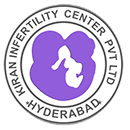
- BY: admin
- No Comments
Egg donation is a process where a woman provides her eggs to another individual or couple for assisted reproduction. This altruistic act helps those who are unable to conceive using their own eggs, offering hope to many aspiring parents.
Egg donation is crucial for various reasons:
- Age-related infertility: As women age, their egg quality and quantity decline.
- Premature ovarian failure: Some women experience early menopause.
- Genetic disorders: Couples may want to avoid passing on hereditary conditions.
- Same-sex male couples: They require eggs to create embryos.
- Cancer survivors: Certain treatments can affect fertility.
In a landmark decision, the Bombay High Court has ruled that sperm or egg donors do not have legal rights over children born from their donations. They are not the parent. This ruling came in response to a case involving a woman seeking visitation rights to her twin daughters, who were born through surrogacy.
The Case Background
The woman, aged 42, had filed a petition for visitation rights to her five-year-old twin daughters. The children were living with her estranged husband and her younger sister, who had donated the eggs. The husband argued that the egg donor, being the biological parent, had more rights over the children than his wife.
The Court’s Decision
High court Judge dismissed the husband’s argument, clarifying that while the sister was the genetic mother, she did not have legal parental rights. The court emphasized that the role of an egg donor is limited to providing genetic material and does not extend to parental responsibilities or rights.
Legal Framework
The court’s decision was based on the guidelines of the Indian Council of Medical Research (ICMR) from 2005, which were applicable as the surrogacy agreement was made before the Surrogacy (Regulation) Act of 2021. According to these guidelines, both the donor and the surrogate mother must relinquish all parental rights.
Implications of the Ruling
This ruling reinforces the legal stance that donors of sperm or eggs cannot claim parental rights over children born from their donations. It also highlights the importance of clear legal frameworks to protect the rights of all parties involved in surrogacy arrangements.
Conclusion
The Bombay High Court’s decision is a significant step in clarifying the legal status of sperm and egg donors in India. It ensures that the intended parents’ rights are protected, and donors cannot claim parental rights over the children born from their donations.

- Tags:
- Egg Donor
- Egg Donor Rules
